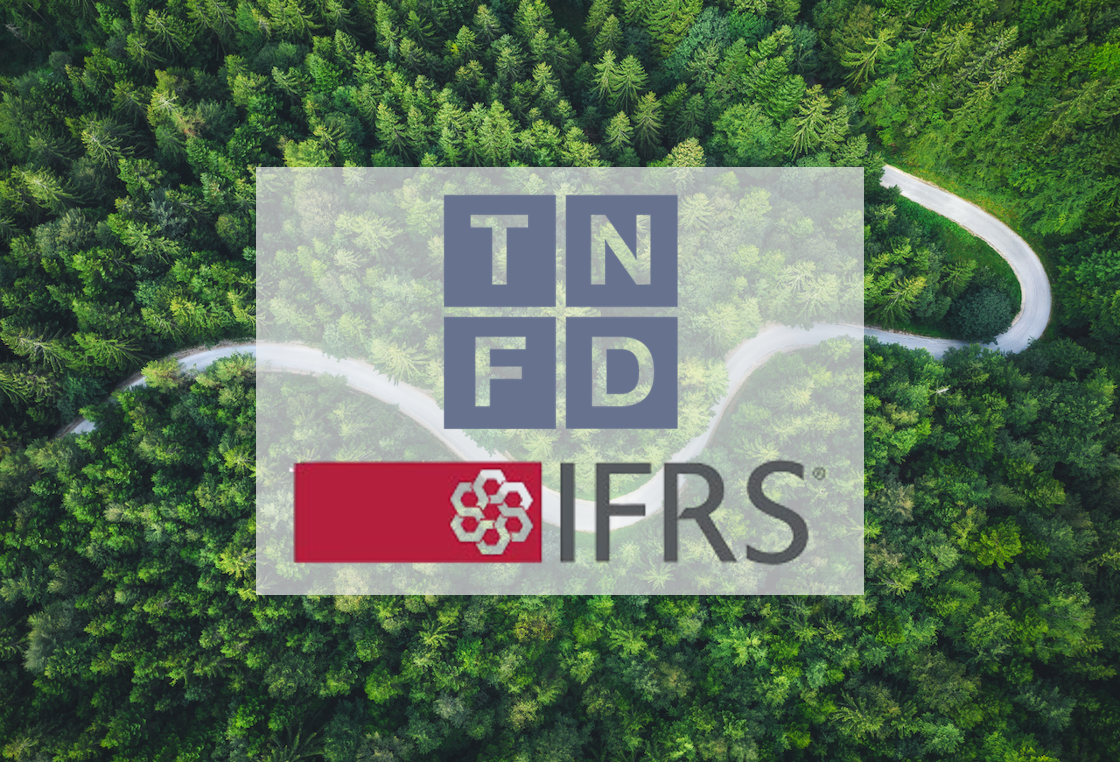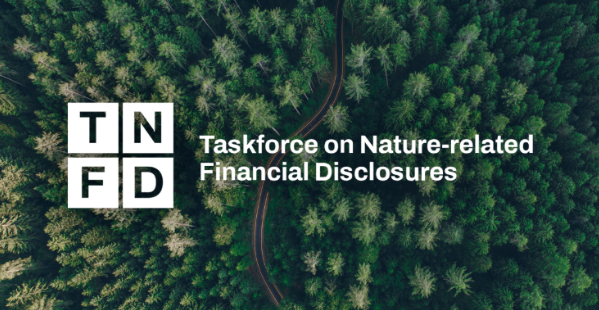TNFD Releases Final Ocean Sector Guidance: New Sector Guidance Adds Depth to Ocean-related Disclosures
Ocean ecosystems are vital to the environment, society, and the economy. To improve corporate reporting on impacts and dependencies related to the ocean, the Taskforce on Nature-related Financial Disclosures (TNFD) has published a guidance package specifically for ocean-related industries.
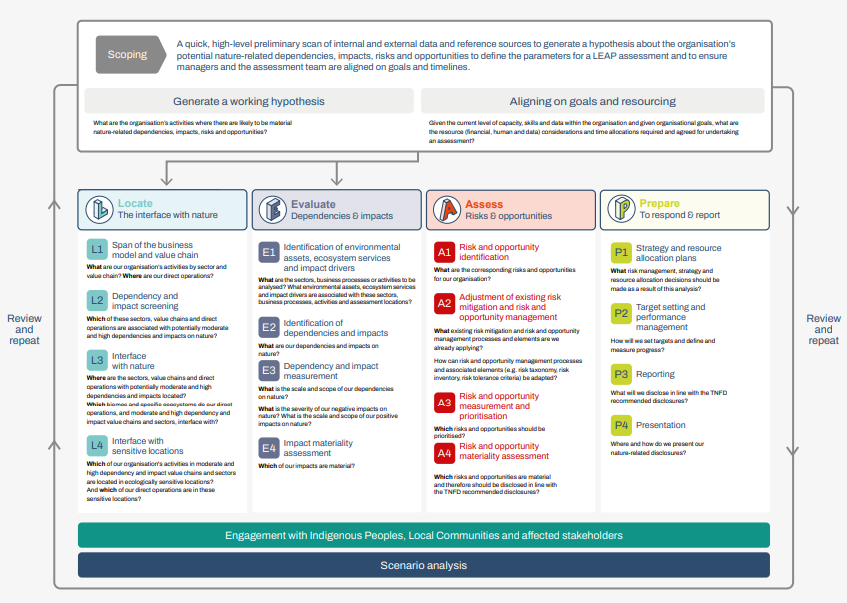
On 6 June 2025, the Taskforce on Nature-related Financial Disclosures (TNFD) published a comprehensive ocean disclosure package, which includes finalised sector-specific guidance for the fishing and marine transportation industries, along with a discussion paper on measurement approaches for ocean-related nature risks. The release aligns with global events such as the UN Ocean Conference (UNOC3) and the Monaco Blue Economy & Finance Forum, reinforcing the strategic relevance of ocean-related disclosure in sustainability reporting.
Fishing Sector Guidance
TNFD’s guidance for the fishing sector was shaped through collaboration with over 100 organisations and focuses on addressing nature-related risks across the wild-capture seafood value chain. It helps companies assess dependencies on healthy fish stocks, impacts on marine ecosystems, and exposure to IUU (illegal, unreported and unregulated) fishing. The guidance aligns with existing industry standards and the Science Based Targets Network’s ocean targets.
To support interoperability, TNFD partnered with the Marine Stewardship Council (MSC) to create a mapping table, allowing MSC-certified fisheries to align existing disclosures with TNFD metrics. It also points to ISEAL-compliant schemes and the GSSI Benchmark Tool as additional resources.
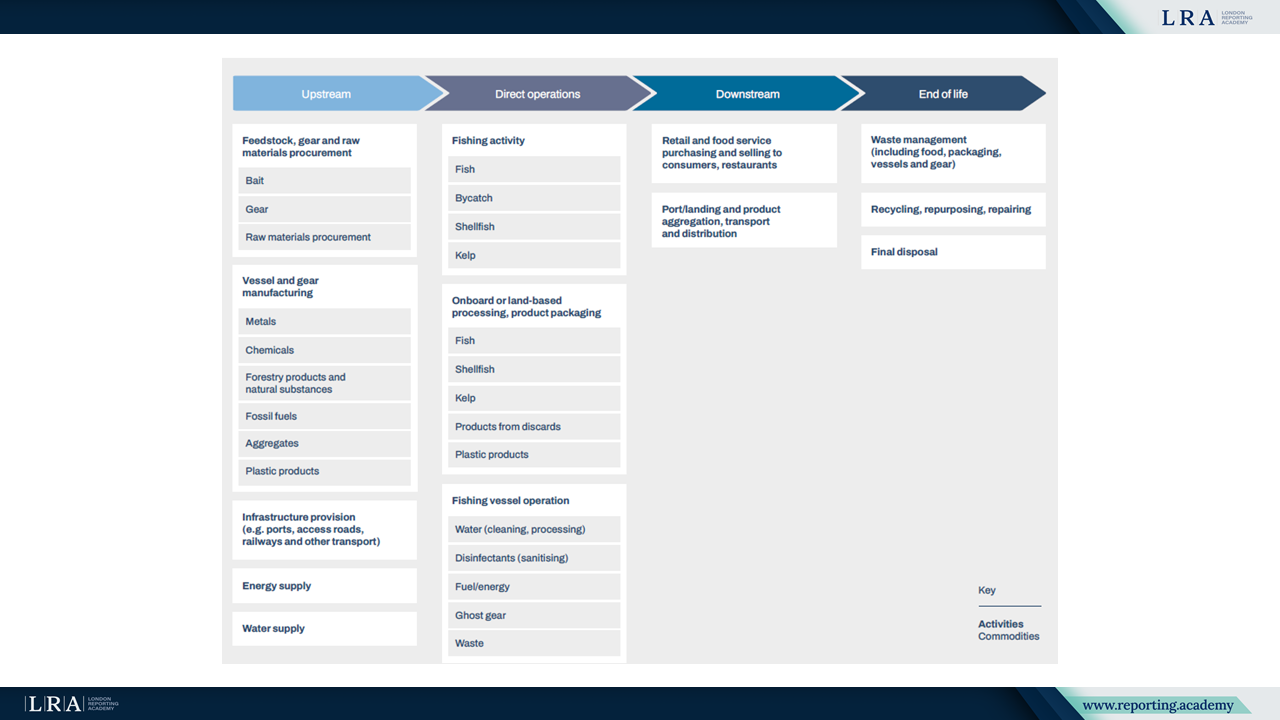
Source: Typical fishing industry value chain, Additional sector guidance – Fishing
The document extends the LEAP (Locate, Evaluate, Assess, Prepare) approach with specific recommendations tailored to activities across the wild-capture seafood value chain, including fishing, primary processing, aggregation, storage, transport, trading, and retail. It highlights the sector’s reliance on functioning marine ecosystems and outlines major environmental pressures: stock depletion, bycatch of non-target and protected species, and physical damage to habitats.
In many jurisdictions, challenges in the fishing sector remain, including achieving effective, science-based fisheries management; accessing data, including on habitats and non-target species; tracing supply chains; and stopping Illegal, Unreported and Unregulated (IUU) fishing activities. An additional challenge is that ocean ecosystems are more susceptible to climate change than terrestrial ecosystems, with mobile and sedentary marine populations moving quickly in response to changing water temperature.
To address these, it promotes practices such as:
- Ecosystem-based management approaches;
- Protection of important spawning and breeding grounds;
- Effective mitigation of impacts on target and non-target species and habitats;
- Transparency on fishing activity, governance and management;
- Regular data collection;
- Full traceability of seafood products across the value chain;
- Certification of fisheries to leading standards;
- Science-based regulation;
- Effective enforcement against overfishing and IUU fishing;
- Minimising pollution from lost or abandoned gear;
- Engagement with stakeholders, including local communities and third-party oversight.
The document complements TNFD’s broader LEAP guidance and is intended for use alongside biome-specific materials and stakeholder engagement frameworks.
Marine Transportation and Cruise Lines Guidance
The marine transportation and cruise lines guidance helps organisations assess nature-related issues linked to sensitive marine environments, such as marine protected areas, migratory corridors, and coral reef systems. Developed with input from industry stakeholders, it builds on the TNFD’s LEAP framework and focuses on practical disclosure of sector-specific dependencies and impacts.
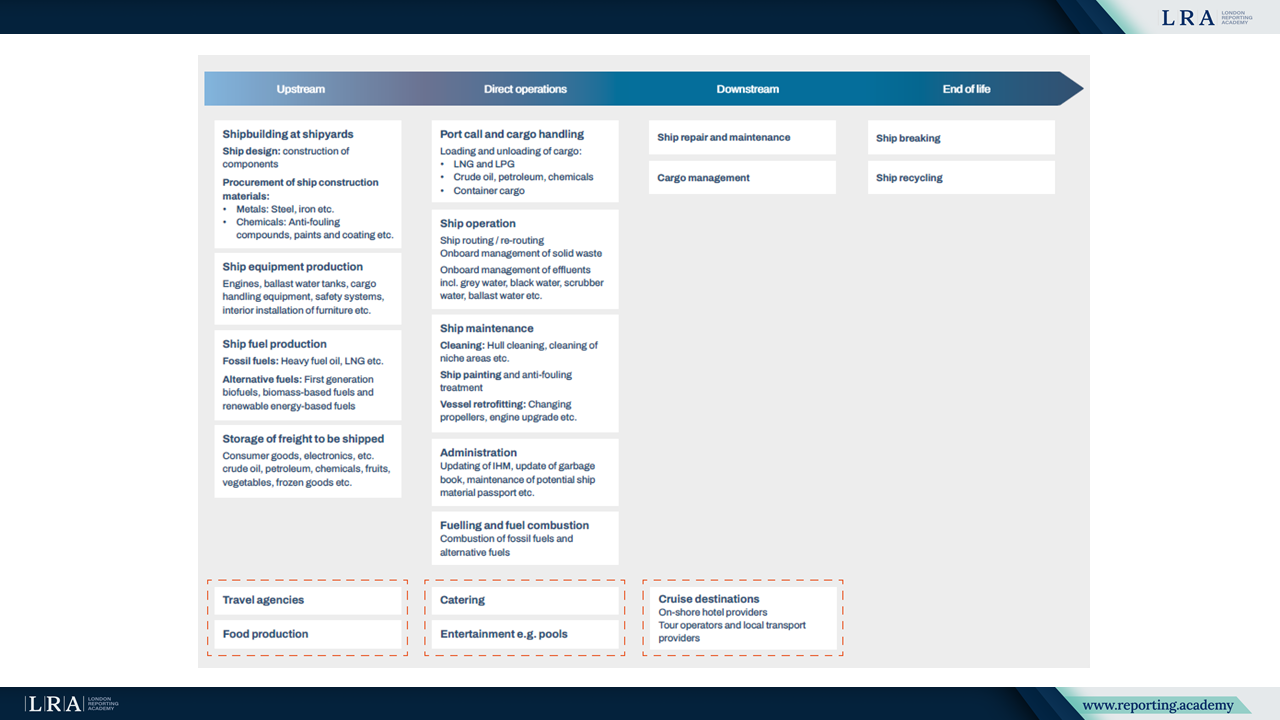
Source: Marine transportation and cruise lines value chains, Additional sector guidance – Marine transportation and cruise lines
The guidance outlines core and additional disclosure metrics tailored to the sector, supporting application across a wide range of operational contexts. It highlights that assessments should consider vessel type, geographic scope, and vertically integrated value chains. It also encourages the use of scientific references, biome guidance, and stakeholder engagement tools.
The recommendations are not prescriptive but illustrative, offering companies flexibility to identify and disclose nature-related risks, dependencies, and opportunities relevant to their activities.
Discussion Paper: Measurement of Ocean-related Issues
The TNFD’s discussion paper outlines the need for greater clarity and consistency in how organisations measure and disclose ocean-related dependencies, impacts, risks, and opportunities. It emphasises that corporate activity in marine environments differs from terrestrial contexts, requiring tailored approaches.
The document identifies three priority areas for development: (1) enhanced ocean measurement guidance using the LEAP approach; (2) practical case studies and use cases to support application; and (3) advancement of ocean-related metrics and market practices, including better data access and scientific alignment.
It invites ongoing stakeholder input through a public consultation and aims to accelerate the development of consistent, comparable measurement methodologies for ocean topics across sectors. This structure supports both high-resolution data sources (e.g., remote sensing) and proxy indicators, offering flexible entry points for different levels of organisational maturity. Key thematic areas include biodiversity, carbon storage, water quality, and socio-economic services.
Conclusion
The ocean-related materials released by the TNFD reflect a growing emphasis on improving the quality, consistency and sector-specific relevance of nature-related disclosures in marine contexts. By offering tailored guidance for the fishing, marine transportation, and cruise line industries – alongside a discussion paper focused on advancing ocean measurement methodologies – the TNFD supports practical integration of nature considerations into risk management and reporting. The package also reinforces the need for stakeholder engagement, alignment with scientific practices, and interoperability across disclosure systems.
